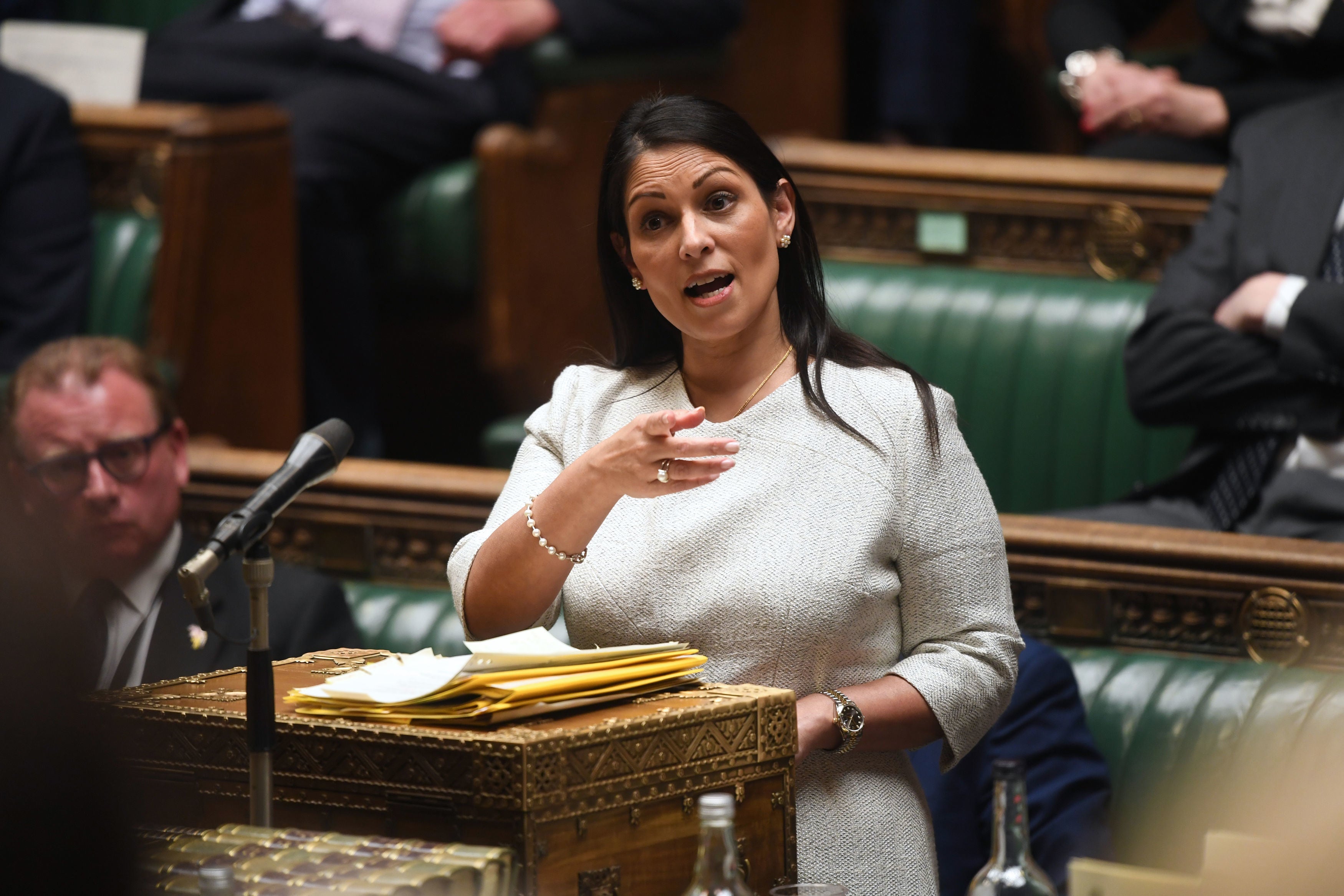Priti Patel faces legal challenge against Rwanda deportation deal
Exclusive: Asylum seeker launches court action against Home Office arguing plan is unlawful

Your support helps us to tell the story
From reproductive rights to climate change to Big Tech, The Independent is on the ground when the story is developing. Whether it's investigating the financials of Elon Musk's pro-Trump PAC or producing our latest documentary, 'The A Word', which shines a light on the American women fighting for reproductive rights, we know how important it is to parse out the facts from the messaging.
At such a critical moment in US history, we need reporters on the ground. Your donation allows us to keep sending journalists to speak to both sides of the story.
The Independent is trusted by Americans across the entire political spectrum. And unlike many other quality news outlets, we choose not to lock Americans out of our reporting and analysis with paywalls. We believe quality journalism should be available to everyone, paid for by those who can afford it.
Your support makes all the difference.Priti Patel is already facing legal action against her plans to ship asylum seekers to Rwanda in what is likely to be the first of many challenges against the controversial policy.
Lawyers representing an asylum seeker who is eligible for removal under the plans have lodged a judicial review application, arguing that sending him to the East African country would violate his human rights.
They argue that the deal the British government has brokered with Rwanda – which will see asylum seekers who have arrived in the UK sent 4,000 miles away to have their claims considered by the Rwandan authorities – breaks the law in multiple ways.
The lawyers say it is in breach of both the European Convention on Human Rights (ECHR) – on the basis that it denies deportees proper access to the courts and is discriminatory – and the Geneva Convention, which stipulates that asylum seekers should not be penalised for their method of arrival.
The lawyers also argue that the policy breaks the law on the basis that Rwanda cannot be considered a “safe country”, as the UK government claims.
The solicitor bringing the case, Harjot Singh of Twinwood Law Practice, told The Independent: “We strongly feel that the [policy] is unlawful. I’ve got all my faith in the judicial system. I’ll leave it to the judges.”
Zoe Bantleman, legal director at the Immigration Law Practitioners’ Association, said there were likely to be further legal challenges.
“The government is not above the law, which lawyers are professionally and ethically charged to uphold without regard to their politics,” she said.
“Further litigation, to challenge any failure by the UK to comply with its obligations under the law, is likely, and will be necessary to maintain the rule of law.”
She added: “We are deeply concerned that if this policy were to be found unlawful by our courts, the government would see our legal and constitutional framework as an impediment to its agenda and alter the law to weaken the protection of rights.”
The multimillion-pound deal, announced last week, is set to see asylum seekers who are deemed to be “inadmissible” – meaning they travelled through a safe country to reach Britain and therefore will not have their claim decided in the UK – deported to Rwanda to have their claims processed there.
The UK’s inadmissibility rules, introduced in January 2021, stipulate that individuals deemed to be inadmissible can be removed to the safe country they travelled through if that country agrees to their return – or otherwise to “any safe third country that will take them”.
Given that the UK has failed to strike any bilateral returns agreements with EU countries to enable it to send asylum seekers back to the continent, ministers hope the new migration deal will mean they can instead remove them to Rwanda.
The agreement requires Rwanda to process claims in accordance with the UN Refugee Convention, ensuring protection from inhuman and degrading treatment.
However, the lawyers argue that there is “no mechanism in place to ensure that this is done”, adding that Rwanda has a “poor human rights record” and that asylum seekers in the country are “not treated in accordance with [the] acceptable level of treatment accorded to them by international law”.
They cite an Amnesty International report published in 2019 which describes an incident in February 2018 in which at least 11 Congolese refugees were killed when the police opened fire on protestors in Karongi town and in Kiziba refugee camp, both in western Rwanda.
The report states that one year on, rather than investigating the unnecessary and/or excessive use of force by police, the Rwandan authorities have arrested and prosecuted refugees for their involvement in the protests.
The lawyers also quote the US government’s latest Trafficking in Persons report for 2021, which accuses the Rwandan authorities of detaining thousands of potential victims in district transit centres “without conducting adequate screening or referring identified victims to proper care and assistance”.
The report adds the Rwandan government investigated fewer trafficking cases and prosecuted and convicted fewer traffickers compared to the previous year, and that it “lacked a victim-witness support programme”.
A Home Office spokesperson said: “Rwanda is a safe and secure country with a track record of supporting over 130,000 refugees, including through the UN Refugee Agency who themselves said the country has a safe and protective environment for refugees.
“This agreement is in line with domestic and international legal obligations and we will defend any legal challenge robustly.”
Join our commenting forum
Join thought-provoking conversations, follow other Independent readers and see their replies
Comments